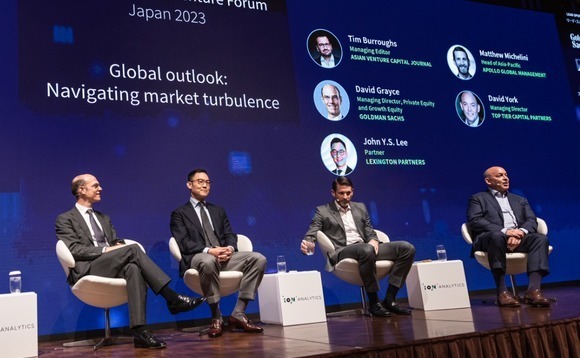
Global dealmakers highlight private credit, continuation funds – AVCJ Forum

Private credit and secondary continuation funds have emerged as popular themes globally as high interest rates, geopolitical tensions, and macro uncertainty persist, GPs told the AVCJ Private Equity & Venture Forum Japan 2023.
As the world steps into positive real rates for the first time in more than a decade, corporates increasingly realize they need to deleverage, said Matthew Michelini, head of Asia Pacific at Apollo Global Management.
"Equity is needed in the world but a lot of companies don't want to issue equity as that'd be dilutive," he observed. "We see a great opportunity to be senior equity ... where you can protect the downside, invest higher up in the capital structure, capture a lot of upside when there are merger or acquisition opportunities."
Apollo has USD 550bn in assets under management: USD 400bn in private credit, USD 100bn in private equity, and USD 50bn in hybrid equity, which is defined as lower risk, lower return equity.
David Grayce, a Sydney-based managing director at Goldman Sachs who focuses on private equity and growth equity, acknowledged that rising interest rates have created openings for private credit providers. In Australia, these providers represent an alternative funding source for corporates to the major domestic banks.
"We now see a variety of participants who are active in Europe, America and Asia providing very large unitranche securities for leveraged buyouts," Grayce said.
Goldman and Apollo are also both active in the secondaries space, with Apollo recruiting a team from BlackRock last year to lead the strategy. Rising volumes in recent years have been led by GP-led deals as private equity firms look to return capital to LPs and secure more time to develop portfolio companies.
Lexington Partners, which has USD 70bn in AUM, is a secondary specialist that primarily operates in LP-led secondaries, buying portfolios of fund positions from institutional investors. John Y.S. Lee, a Hong Kong-based partner at Lexington, noted that continuation funds dominate the GP-led landscape.
"They are different to [traditional] secondaries in that they are more focused on restructuring," said Lee. He expects to see more GP-led activity in other areas like portfolio strip sales and LP tender offers.
However, pricing remains a challenge. Lee added that most transactions are priced at a discount to net asset value (NAV) and this can be too steep for LPs to stomach.
Latest News
Asian GPs slow implementation of ESG policies - survey
Asia-based private equity firms are assigning more dedicated resources to environment, social, and governance (ESG) programmes, but policy changes have slowed in the past 12 months, in part due to concerns raised internally and by LPs, according to a...
Singapore fintech start-up LXA gets $10m seed round
New Enterprise Associates (NEA) has led a USD 10m seed round for Singapore’s LXA, a financial technology start-up launched by a former Asia senior executive at The Blackstone Group.
India's InCred announces $60m round, claims unicorn status
Indian non-bank lender InCred Financial Services said it has received INR 5bn (USD 60m) at a valuation of at least USD 1bn from unnamed investors including “a global private equity fund.”
Insight leads $50m round for Australia's Roller
Insight Partners has led a USD 50m round for Australia’s Roller, a venue management software provider specializing in family fun parks.








